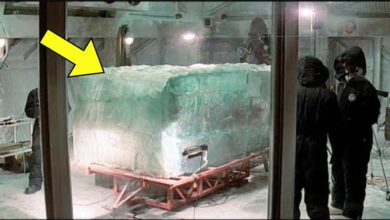Insane Sea Creatures from 0 to 30,000ft

**Sea Life Adventure**

We start at the surface, diving 30,000 feet to discover strange and dangerous creatures. First up is the *Portuguese Man of War*—one of the most venomous creatures in the ocean, often mistaken for a jellyfish. In fact, it is a siphonophore, not a jellyfish. With its distinctive blue-purple bladder, it floats on the surface and is propelled by the wind. However, its tentacles, which can grow up to 100 feet long, are filled with venom enough to paralyze fish and cause pain to humans if they accidentally touch it.
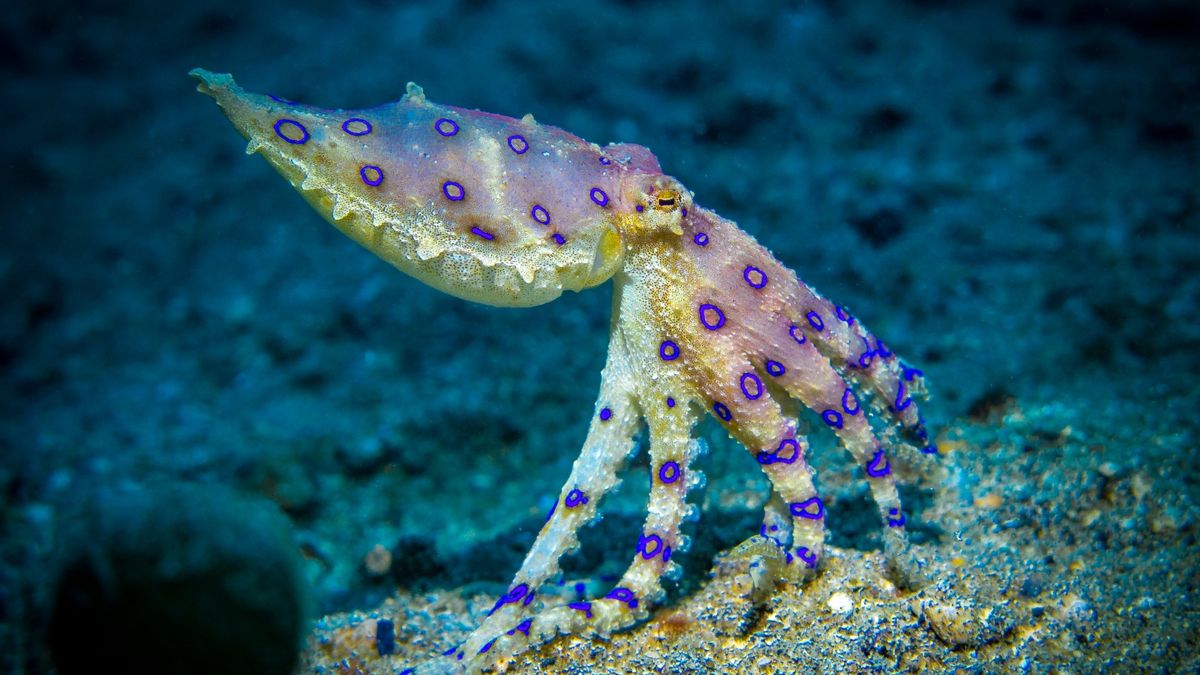
Just a few steps down, we meet the *Blue-Ringed Octopus*. Although smaller than a human hand, its bite is not immediately painful, but can paralyze and suffocate victims for several minutes, even causing death. There have been 10 recorded deaths from this species.
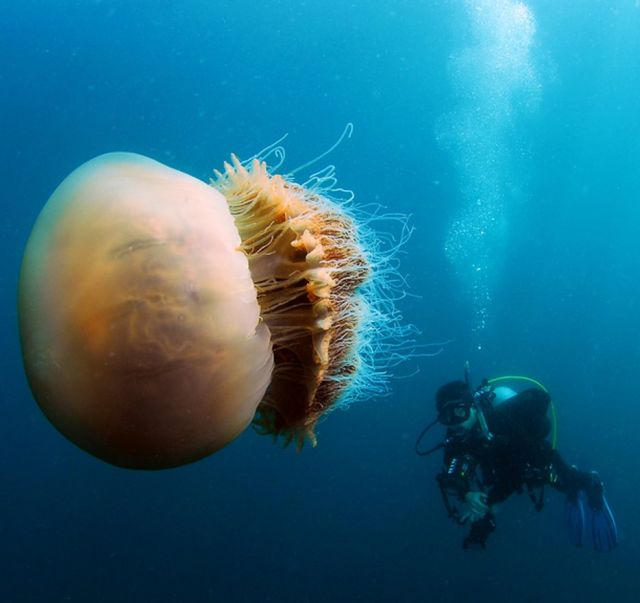
At the same depths, there is the *Lion’s Mane* jellyfish—the longest jellyfish in the ocean, reaching up to 120 feet in length, surpassing even the blue whale. Despite its beauty, the shallow waters are also fraught with danger, such as sea snakes whose venom is more potent than that of land snakes. Some species are capable of diving as deep as 800 feet.
**Twilight Zone (600 – 3,000 feet)**

In this zone, light is low and temperatures plummet, but life is abundant. The *Humboldt* squid, which can grow to over 6 feet in length, is a fast hunter that travels in packs and can change color to camouflage itself or communicate. They sometimes surface at night to hunt, and there are legends of fishermen being attacked by these packs and disappearing forever.

Another notable species is the *Ocean Sunfish*, the world’s heaviest bony fish. They bask on the surface of the ocean to warm up before diving as deep as 2,000 ft, where temperatures drop to 2-3°C.
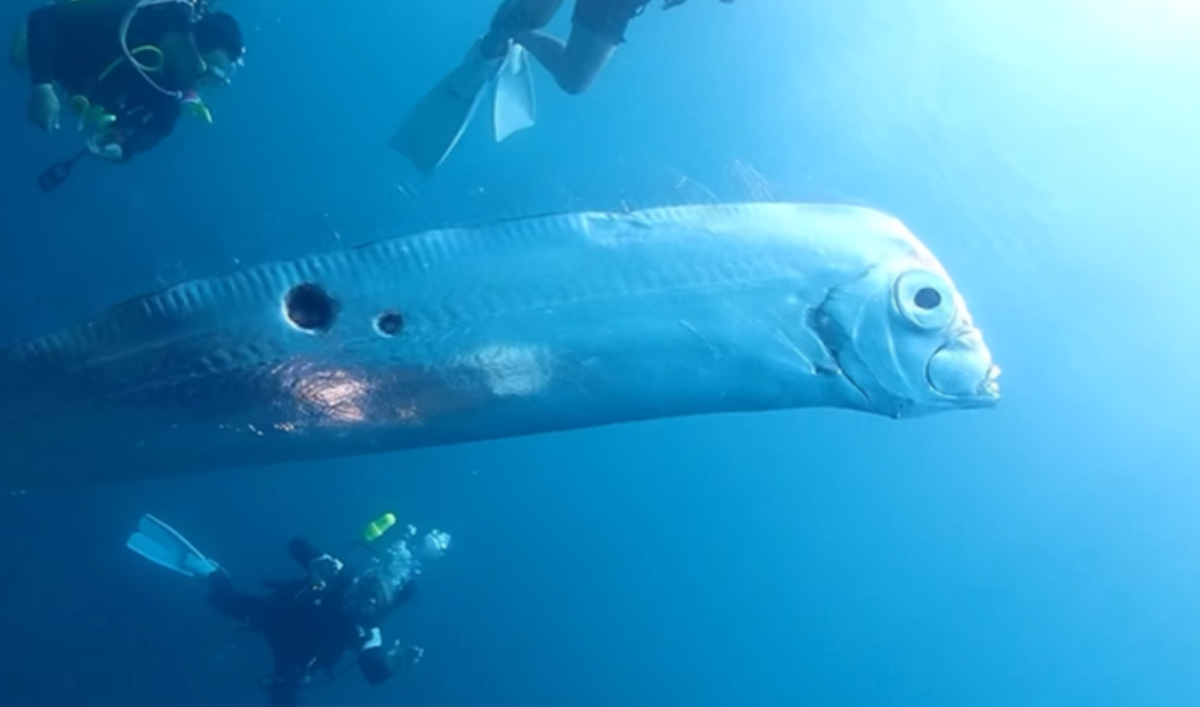
Also in the Twilight Zone, we meet the *Giant Oarfish*—the longest bony fish, sometimes up to 36 ft long. The Japanese often associate them with mystical stories. The *Barreleye Fish* has eyes that face upward, protected by a transparent membrane, allowing them to observe their surroundings without fear of venom from other creatures.
**Midnight Zone (below 3,300 ft)**

Here, light is almost non-existent, but many creatures have adapted perfectly to the darkness. The *Sea Dragon* uses its luminous organs to attract prey and camouflage itself. It has sharp teeth and special eyes that can see in the infrared spectrum, helping it detect predators or prey.


Another predator is the *Goblin Shark*, which is notable for its snapping jaws to catch prey. Along with it is the *Giant Pacific Octopus*, the world’s largest octopus with an arm span of up to 16 feet, known for its camouflage and intelligence when hunting.
**Strange Life in the Deep**
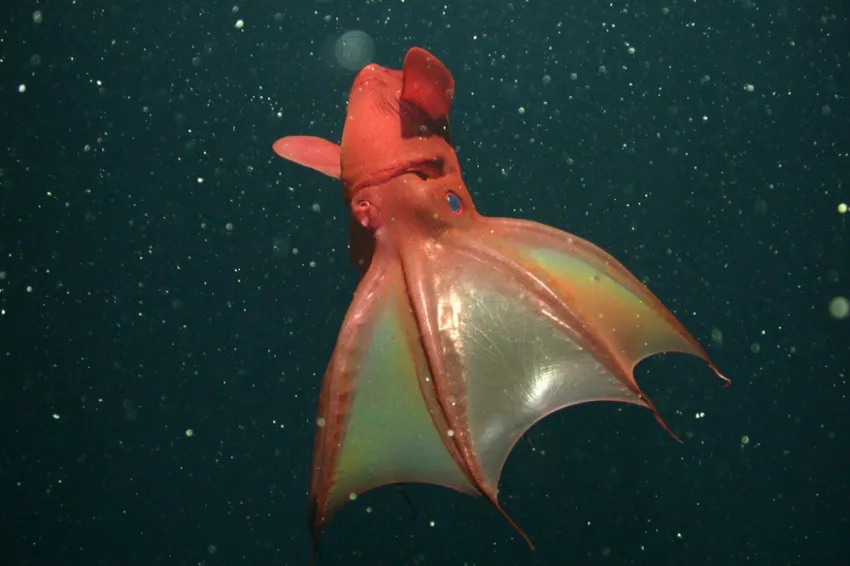
The Greenland Shark, which lives at depths of more than 7,000 feet, is the longest-lived species, able to live for more than 400 years. There is also the *Vampire Squid*—not a true squid but a separate species, with a bright red mantle like a cloak. This species can flip its mantle upside down to reveal its spines and ward off predators.

Deeper in the Abyssal Zone, we encounter the *Giant Isopod*—a giant crustacean up to 2.5 feet long that can go four years without eating. The species that live here must take every opportunity to survive, for example, this species will attack any prey, including sharks, if given the chance.

Finally, we meet the *Dumbo Octopus*, named after the Disney character thanks to its two fins that resemble elephant ears. This octopus lives in the eternal darkness of the deep sea and is a testament to the beauty and wonder of the deep ocean.






